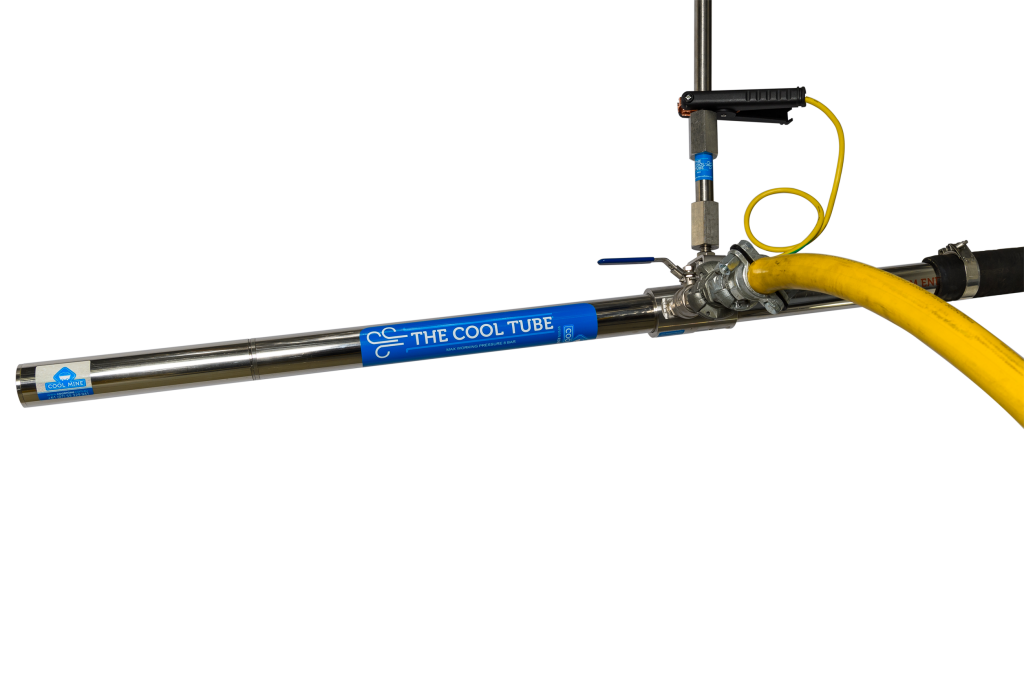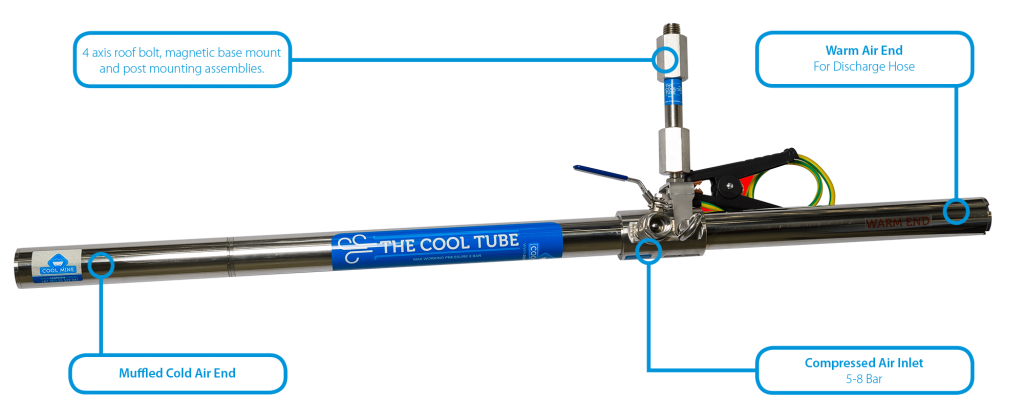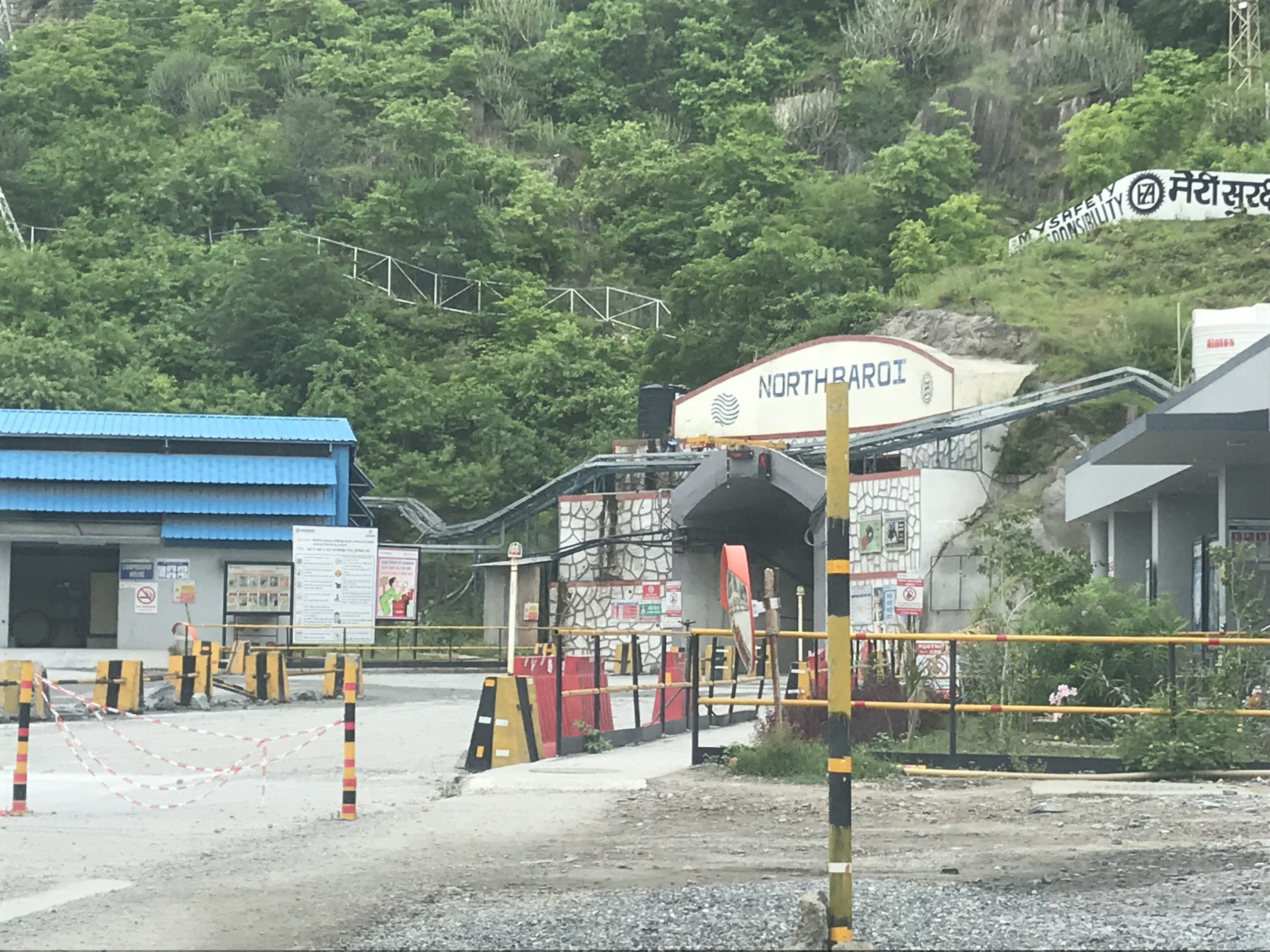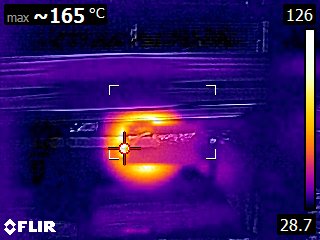Its not just about using the breaks to manage the onset of Heat Stress in the Mine. Cool, dry air flow plays a major role!
Posted on October 13th, 2020
Too often it is the lack of hydration and excessive physical exertion that are the tipping points towards a person suffering from mild, or in some cases chronic symptoms of heat stress, in the relentless heat and humidity experienced when working in underground mining and tunneling.
So what is heat stress and what are a couple of ways we can deal with it?
HEAT STRESS – The sum of the environmental and metabolic heat loads on the body.
While regular water intake is still king of the hill, some control over the environment and work rate / effort, is quiet often enough you need to keep you in good health and safe from the effects of heat stress, while getting the job at hand completed without any major fuss. Typically we responded to heat stress by focusing on reducing the metabolic component with such things as:
- Reduced work activity and self pacing.
- Work rotation.
- Retreat to a cooler area for some recovery time.
- Stop the job.
This is all good stuff and recommended where and when required, but nobody wants to constantly be stopping mid task to go and have heat and recovery breaks, or having others taking over blindly to continue in a work rotation situation. It adds complexity and risk to any task. People lose focus starting and stopping a job. It adds likelihood to an incident occurring, in much the same way an unplanned task does or, working with the heat stress…
“People just want to go about their job or task safely, with as little disruption, change or fuss as possible. It is an obligation to ensure they are not being put in any dangerous situation in doing so. It is of great importance that no-one is given the opportunity to enter a dangerous situation or condition such as heat stress”
The Cool Tube® Inventor
So, how can the environmental factors of Heat Stress be manipulated and controlled, to soften the effects that metabolic heat loads have on the body? By ensuring a couple of key environmental challenges are addressed. But first, lets look how the magnificent human body cools itself and how it interacts with its surrounding environment, to bring it all together.
How Humans Regulate Body Heat?
Evaporative Cooling!
- Your body temperature increases and the skin “sweats” liquid to the surface.
- Sweat evaporates by the liquid turning to a gas. This change of state from liquid to gas requires energy.
- The body provides this energy as heat.
- Air passes over the skin and absorbs the evaporated sweat.
- By giving up this heat energy to evaporate the “sweat”, the body experiences a decrease in body temperature.
Environmental Conditions That Hinder the Bodies Cooling Process!
- Warm Humid air– The surrounding warm air has a direct impact on the human body and is unable to accept as much additional moisture from the skin, due to the moisture level it already holds. IE – At 90% humidity, there is not much room left in the surrounding air to accept much more moisture, let alone quickly!
- Low air flow – The layer of moisture laden air remains around the skin, not allowing fresh air to flow through and accept more evaporated sweat, reducing the decrease in body temperature. You’re sweating bullets sitting down!
“There is a dam good reason why Mining Legislation world wide, states minimum air flow requirements and maximum allowable working temperatures for Underground Mine Workers”.
Quarry Mining and Construction – Kevin Royal
What’s the Best Environmental Condition to Assist the Human Bodies Cooling Process?
- Dry air / low humidity – This ensures the surrounding air readily accepts the moisture off the skin. (The lower the humidity, the more moisture the air can absorb off the skin, increasing the the effectiveness of the bodies evaporative cooling process).
- Active air flow – The moving air replaces the layer of air close to the skin that has become saturated with the evaporated sweat, ready for the next layer of sweat to be evaporated and taken away! Ta-Dah, you’re and evaporative cooler!
- Cool air – Supports the functions of 1 and 2 and lessens the work load on the body. You have now softened the effects that metabolic heat loads have on your body.
NOW THAT”S PRETTY COOL STUFF. It just so happens, that we know how to get high flowing, cool dry air on tap, in your underground mine, right at your workspace!
THE COOL TUBE®
Now you know how heat stress and the human body cooling process works, how can you give yourself and the workforce in the underground, the best opportunity at setting up the ideal environmental conditions, to work both more comfortably and cooler, without the expense of bulk air or water chiller systems?

The Cool Tube® boldly goes where no other cooling has gone before!
With no moving or maintainable parts, no gasses, no electricity, just a compressed air supply, these mine spec, lightweight, portable compressed ‘air conditioners’, deliver super cooled air to the workspace, to combat the environmental condition of heat stress, and/or assist in controlling the operational temperatures of equipment and infrastructure.

Take the cool air to where it’s needed, where the people are!
So, to wrap this up, to assist in reducing the toll on the body from the metabolic component of heat stress, consider improving the environmental component of Heat Stress.




